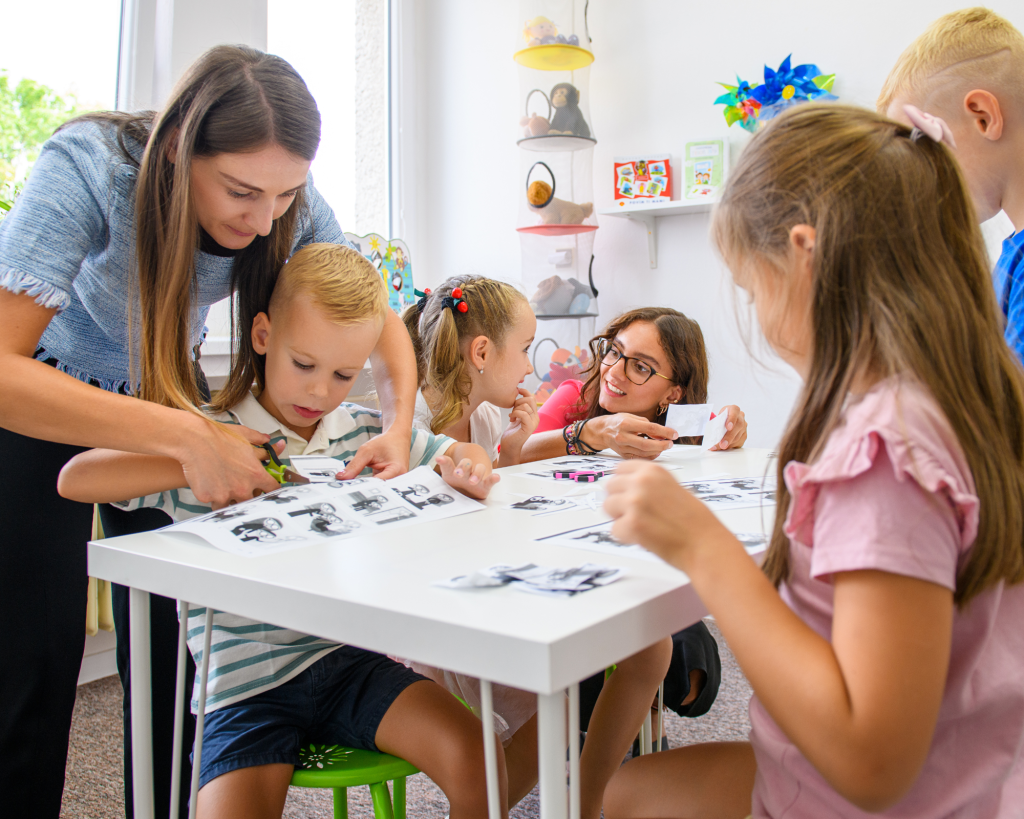What do Occupational Therapists do? How can they help children? These questions are frequently asked when people encounter the word “Occupational Therapist”.
Occupational Therapy is the only profession that helps people across the lifespan to do the things they want and need to do through the therapeutic use of daily activities (occupations). Occupational therapy practitioners or Occupational Therapists (OTs) enable people of all ages to live life to its fullest by helping them promote health, and prevent—orlive better with—injury, illness, or disability.
Here are the things that Occupational Therapists work on.
1. Primitive Reflexes
Primal reflexes are reflex actions originating in the central nervous system that are exhibited by normal infants in response to particular stimuli. These are whole-body movement patterns that are developed in the womb and infancy and will become inactive after the toddler stage. So, if these reflexes do not integrate fully, they can inhibit other development such as visual eye tracking, focus, attention, and can contribute to anxiety and learning difficulties. Occupational Therapists (OTs) help integrate these reflexes.
2. Strength
If a child has weak core muscles, they will have difficulties with their gross motor skills, in navigating the playground equipment during recess, and in controlling fine motor skills needed in writing and cutting. OTs can also work on overall trunk stability and strength.
3. Crossing Midline
Crossing midline refers to the ability to reach across the middle of the body with the arms and legs crossing over to the opposite side. Not being able to cross the midline can result in poor handwriting and difficulty with reading. OTs, address these concerns by giving exercises that can help address crossing the midline.
4. Sensory Processing
Sensory processing is the process that organises sensation from one’s body and the environment. A child that has sensory processing issues can be oversensitive to sound, sights, flavours, textures, smells, and other sensory input that can lead to anxiety. OTs can help kids feel less overwhelmed and learn to cope with challenging situations.
5. Hand-Eye Coordination
Hand-eye coordination is the way that one’s hands and sight work together to be able to do things that require speed and accuracy. It is essential for developing fine motor skills, handwriting, reading, social skills, motor planning, and visual perception.
6. Hand Dominance
Usually, children around 5 years old start to feel that one hand is stronger than the other when performing fine motor tasks. That becomes their dominant hand and the other acts as a stabiliser. If they aren’t able to determine their dominant hand it will lead to poor handwriting and poor fine motor skills. OTs help determine the dominant hand and improve their fine motor skills.
7. Visual Perceptual Skills
Visual perceptual skills are the skills that a child uses to make sense of what he/she sees. Poor visual perceptual skills affect the ability to read, track, write, and remember what they see. Visual Perceptual skills are a very important skill required for the classroom.
8. Activities of Daily Living (ADLs)
ADLs are the activities that are required to get going in the morning such as dressing, brushing teeth & tying shoes. These are what we call routine activities and an OT can help develop these skills for independent living.
9. Instrumental Activities of Daily Living (IADLs)
IADLs are the activities that people do once they get up and get dressed. They include: preparing meals, managing money, shopping, performing light or heavy housework, doing laundry, and even using a telephone or mobile phone. These tasks support an independent life. OTs, help these skills that are essential to participate in home, school, community, and work environments independently.
10. Occupation
Children have the occupation of learning and playing. OTs can help children with various needs to improve their cognitive, physical, sensory, and motor skills and enhance their self-esteem and sense of accomplishment.
For more information on how an OT can help your child feel free to contact us on (02) 4959 8920 or visit our Facebook page https://www.facebook.com/happydotsot



